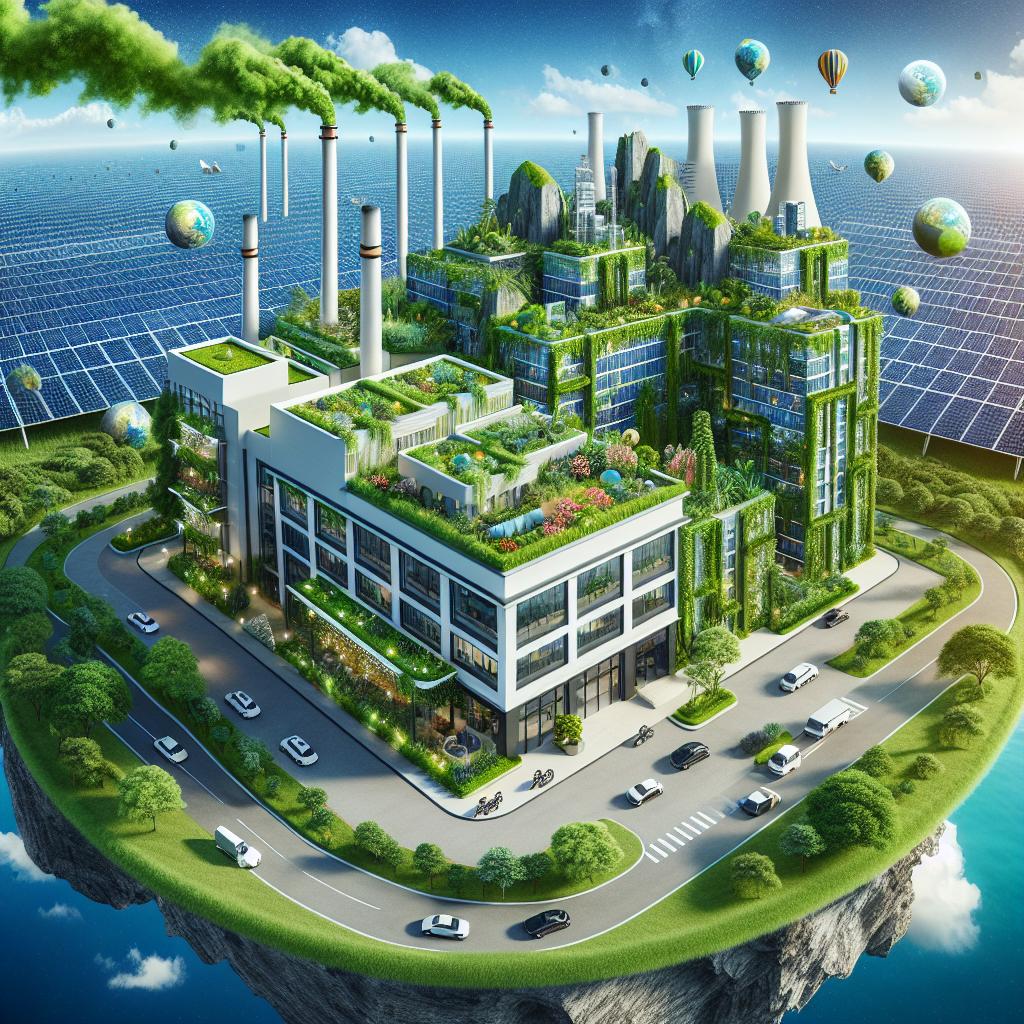Renewable energies in practice

Amid increasing global awareness, businesses have started to take a more active role in adopting sustainable practices and reducing their carbon footprint. Therefore, it is worth exploring how green businesses are contributing to sustainable production and consumption through the use of renewable energy, particularly solar energy, and their commitment to disaster risk reduction.
First and foremost, green businesses recognize the importance of sustainable production and consumption in reducing environmental degradation and resource depletion. They aim to minimize waste generation and embrace circular economy principles, ensuring that resources are used efficiently and effectively. According to a recent study, the circular economy could generate $4.5 trillion in economic benefits per year by 2030, while reducing global greenhouse gas emissions by 39%.
One of the most significant ways green businesses contribute to sustainability is by harnessing the power of renewable energy, with solar energy being a popular choice. Solar power offers a clean, abundant, and affordable alternative to traditional energy sources. In fact, solar power has experienced exponential growth in recent years, with the global solar photovoltaic market projected to reach USD 1,618.7 billion by 2028, growing at a CAGR of 17.5% during the forecast period.
Green businesses are leading the charge towards a more sustainable energy future by installing solar panels on their premises or purchasing renewable energy from utility companies. For instance, IKEA, which has committed to becoming 100% renewable by 2025, has already installed over 700,000 solar panels on its stores and warehouses worldwide. Google, another corporate leader, generated more renewable energy than it consumed in 2022, and Apple's data centers now run on 100% renewable energy.
Moreover, solar energy is not only beneficial for large corporations but also for small businesses and individual consumers. According to the Solar Energy Industries Association, the United States added 20.9 gigawatts of solar capacity in 2022, enough to power 4.3 million homes. This trend is expected to continue, as the cost of solar energy is becoming increasingly competitive with traditional energy sources.
Another vital aspect of sustainable business practices is disaster risk reduction. With climate change leading to more frequent and severe weather events, it is crucial for businesses to be prepared and resilient in the face of potential disasters. Green businesses are leading the way by implementing disaster risk reduction measures, such as investing in early warning systems, emergency preparedness plans, and disaster recovery strategies.
For example, Unilever, a global consumer goods company, has established a Climate & Environment Risk Committee to oversee its climate risk management strategy. The company has also set a target to achieve net zero emissions from all its products by 2039. Furthermore, it is investing in projects that help build climate resilience in its supply chain and communities where it operates.
Besides reducing their carbon footprint and improving their resilience, green businesses are also contributing to the global transition to a sustainable economy by creating jobs and driving innovation. According to the International Renewable Energy Agency, the renewable energy sector employed approximately 12 million people in 2020, and this number is expected to increase significantly in the coming years.
In conclusion, Earth Day 2023 offers an opportunity to reflect on the progress made by green businesses in implementing sustainable practices, particularly in the areas of renewable energy and disaster risk reduction. As more businesses embrace these practices, we can look forward to a future where economic growth and environmental sustainability go hand in hand. By supporting and promoting these businesses, we can collectively contribute to a more sustainable and resilient future for our planet.




